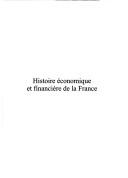| Listing 1 - 10 of 19 | << page >> |
Sort by
|
Book
ISBN: 9791037029546 9791037029553 Year: 2023 Publisher: Editions Hermann
Abstract | Keywords | Export | Availability | Bookmark
 Loading...
Loading...Choose an application
- Reference Manager
- EndNote
- RefWorks (Direct export to RefWorks)
"Dans un passage de son Roman bourgeois (1666), Antoine Furetière prête à l'un de ses personnages le projet burlesque d'un livre intitulé Rubricologie, ou de l'invention des titres et rubriques, où il est montré qu'un beau titre est le véritable proxénète d'un livre. Le présent ouvrage prend au sérieux cette entreprise, pour comprendre ce que, durant le XVIIe siècle, le titre fait au livre et réciproquement. Quels sont les ressorts et les manifestations de l'enjeu commercial des titres ? Dans quels contextes s'inscrivent-ils ? Quels en sont les effets de sens, y compris dans leur forme matérielle ? Quelles pratiques de lecture induisent-ils ? L'étude menée dans ce volume s'attache à répondre aux nombreuses questions que suscite le tout premier énoncé d'un livre."--Page 4 of cover.
Titres d'oeuvres littéraires. --- Furetière, Antoine (1619-1688). --- Titles of books. --- Titres de livres --- Book history --- anno 1600-1699 --- book history --- Titles of books --- French literature --- Literature and society --- History --- History and criticism
Book
ISBN: 1283850788 9814401854 9789814401852 9781283850780 9814401846 9789814401845 Year: 2013 Publisher: Singapore New Jersey World Scientific
Abstract | Keywords | Export | Availability | Bookmark
 Loading...
Loading...Choose an application
- Reference Manager
- EndNote
- RefWorks (Direct export to RefWorks)
Weather derivatives provide a tool for weather risk management, and the markets for these exotic financial products are gradually emerging in size and importance. This unique monograph presents a unified approach to the modeling and analysis of such weather derivatives, including financial contracts on temperature, wind and rain. Based on a deep statistical analysis of weather factors, sophisticated stochastic processes are introduced modeling the time and space dynamics. Applying ideas from the modern theory of mathematical finance, weather derivatives are priced, and questions of hedging analyzed. The treatise contains an in-depth analysis of typical weather contracts traded at the Chicago Mercantile Exchange (CME), including so-called CDD and HDD futures. The statistical analysis of weather variables is based on a large data set from Lithuania.The monograph includes the research done by the authors over the last decade on weather markets. Their work has gained considerable attention, and has been applied in many contexts.
Stocks --- Weather derivatives. --- Prices. --- Stock prices --- Derivative securities --- Stockholder wealth --- Weather derivatives --- Prices --- E-books --- Actions (Titres de société) --- Prix


ISBN: 2110947896 9782110947895 2111294535 9782111294530 Year: 2020 Publisher: Vincennes : Institut de la gestion publique et du développement économique,
Abstract | Keywords | Export | Availability | Bookmark
 Loading...
Loading...Choose an application
- Reference Manager
- EndNote
- RefWorks (Direct export to RefWorks)
Lancée depuis quelques années, l’ambitieuse enquête sur l’évolution qui a lentement transformé l’Europe méditerranéenne des estimes en Europe des cadastres, est arrivée à son terme avec la publication de trois ouvrages sur le Moyen Âge, l’époque moderne et la période contemporaine. Dans ce premier volume, vingt-neuf des meilleurs spécialistes français et étrangers s’interrogent sur le vaste mouvement qui, de la fin du XIIe siècle à l’aube de la Renaissance, a conduit villes, princes et états du pourtour méditerranéen à recenser de manière systématique les hommes, leurs terres, leurs maisons et leurs avoirs. Ils en recherchent les origines profondément ancrées dans les permanences d’une romanité tenace, scrutent les savoirs de ceux qui ont présidé à la rédaction de ces livres d’estimes, compoix et « cadastres » d’une infinie variété dont ils suivent la longue genèse, analysent les typologies complexes et tentent de comprendre la subtile construction. Recenser, situer, délimiter et estimer en vue de saisir la relation de l’homme à la richesse et à l’espace, voilà bien la mission assignée à ces extimatores qui devaient devenir les hommes du cadastre, comme leurs livres d’estimes sont devenus le cadastre. Ce document dont la mission n’est autre que d’inscrire le droit dans la mémoire de la terre et d’en peser la valeur, avant de la dessiner dans ses moindres contours.
History of France --- anno 500-1499 --- Cadastres --- Land titles --- Titres de propriété --- History --- Congresses. --- Registration and transfer --- Histoire --- Congrès --- Immatriculation et transfert --- Europe --- Economic conditions --- Conditions économiques --- kadaster --- cadastre --- Finances publiques --- Politique fiscale --- Propriété foncière --- Catastro --- Propiedad rústica --- Impôts --- Europa --- Política fiscal --- Titres de propriété --- Congrès --- Conditions économiques --- Land-warrants --- Titles, Land --- Cadasters --- Law and legislation --- Land tenure --- Conveyancing --- Deeds --- Ejectment --- Prescription (Law) --- Vendors and purchasers --- Moyen Âge --- recensement --- terre --- typologie --- livre d’estime --- mémoire --- juriste --- estime --- texte cadastral
Book
ISBN: 1139889079 110724143X 1107250994 1107250161 1107247675 1107248507 1139151231 1107249333 9781107250161 9781139151238 9781107247673 9781107023475 1107023475 9781139889070 9781107250994 9781107248502 9781107249332 1299841732 Year: 2013 Publisher: Cambridge
Abstract | Keywords | Export | Availability | Bookmark
 Loading...
Loading...Choose an application
- Reference Manager
- EndNote
- RefWorks (Direct export to RefWorks)
In today's financial markets, investors no longer hold securities physically. Instead, securities such as shares or bonds are mostly held through intermediaries and transferred by way of book-entries on securities accounts. However, there are remarkable conceptual differences between the various jurisdictions with regard to the legal treatment of intermediated securities. It is widely agreed that this patchwork creates considerable legal risks, especially in cross-border situations. Two initiatives are in place to reduce these risks. In 2009, the UNIDROIT Convention on Substantive Rules for Intermediated Securities (the 'Geneva Securities Convention') was adopted, aimed at harmonisation on the international level. The EU Commission is also running a legislative project, to achieve harmonisation at the regional level. This book compares both initiatives and analyses their impact on the securities laws of selected European jurisdictions.
Securities --- Intermediation (Finance) --- Financial intermediation --- Finance --- Law and legislation --- Unidroit Convention on Substantive Rules for Intermediated Securities --- Convention on Substantive Rules for Intermediated Securities --- Geneva Securities Convention --- Convention d'Unidroit sur les règles matérielles relatives aux titres intermédiés --- Intermediated securities. --- 333.131.2 --- 333.153 --- 347.731 --- AA / International- internationaal --- EEC / European Union - EU -Europese Unie - Union Européenne - UE --- U60 - Titres et instruments financiers - Effecten en financiële instrumenten --- Effectenzaken --- Effectendepositokassen en girokassen. CIK --- Wetgeving op effectenbeurzen, de goederenbeurzen en de deviezenbeurzen. Raider --- Intermediated securities --- Law --- General and Others
Book
ISBN: 9783110303896 9783110304176 3110303892 3110485354 3110304171 Year: 2013 Volume: 261 Publisher: Berlin De Gruyter
Abstract | Keywords | Export | Availability | Bookmark
 Loading...
Loading...Choose an application
- Reference Manager
- EndNote
- RefWorks (Direct export to RefWorks)
Vocatives have rarely been comprehensively discussed in their various facets. With 12 contributions covering the diversity of vocative marking, structures, and functions, as well as the relevance of vocatives for theoretical and methodological reasoning, this volume contributes to closing a significant gap in linguistic research. It provides a detailed picture of the vocative as a structure between 'system' and 'performance'.
Grammar, Comparative and general --- Forms of address. --- Cas (Linguistique) --- Syntaxe --- Titres de politesse --- Case. --- Syntax. --- Dictionnaires --- Grammar, Comparative and general -- Case. --- Grammar, Comparative and general -- Syntax. --- Forms of address --- Languages & Literatures --- Philology & Linguistics --- Case --- Syntax --- Address, Forms of --- Address, Titles of --- Titles of address --- Language and languages --- Letter writing --- Salutations --- Titles of honor and nobility --- Linguistics --- Philology --- Grammar, Comparative and general Syntax
Book
ISBN: 9789401428613 Year: 2015 Publisher: Tielt Lannoo
Abstract | Keywords | Export | Availability | Bookmark
 Loading...
Loading...Choose an application
- Reference Manager
- EndNote
- RefWorks (Direct export to RefWorks)
Niemand kent de aandelenbeurs beter dan Pierre Huylenbroeck, en niemand kan er aanstekelijker over schrijven. De vorige hoofdredacteur van De Tijd heeft bovendien een missie: iedereen - ook u - ervan overtuigen dat aandelen een onmisbare boost zijn voor uw persoonlijke welvaart én die van onze economie. Vergeet dus de spaarboekjes met hun ultralage rente: met aandelen maakt u pas echt het verschil. Reken even mee. Wie 1.000 euro belegt in aandelen, heeft na veertig jaar gemiddeld 15.000 euro. Wie Huylenbroecks gedisciplineerde systeem volgt, heeft zelfs 100.000 euro. Een spaarboekje? 2.208 euro, nog geen veertigste. Te mooi om waar te zijn? Misschien wel. We zijn namelijk slechte beleggers. We kopen duur in volle euforie, panikeren dan op het verkeerde moment en verkopen goedkoop. Ons brein is gewoonweg niet geprogrammeerd om goed te beleggen. Daarom dit boek. Het geeft u alles wat nodig is om zonder roekeloos gokken aan die 100.000 euro te komen: een systeem, begeleding, tips en wijsheden. Glashelder en enthousiast gebracht, in een zwierige stijl die regelmatig voor een glimlach zal zorgen. Geen tijd te verliezen dus: hoe sneller u begint, hoe sneller uw gemoed en dat van onze economie zal opklaren.
Beleggingen --- Aandelenmarkt --- Bourse des valeurs --- Bourses (Valeurs) --- Bourses des valeurs --- Corners [Commecial ] --- Effectenbeurs --- Effectenbeurzen --- Effectenhandel --- Effectenmarkt --- Exchanges [Securities] --- Exchanges [Stock ] --- Marché boursier --- Marché des titres --- Marché des valeurs --- Marchés des valeurs --- Opérations de bourse --- Securities exchange --- Stock market --- Stock-exchanges --- Transactions boursières --- Valeurs, Marché des --- Capital expenditure --- Belgium --- Handbooks, manuals, etc. --- Stock exchanges --- Money market. Capital market --- beleggen --- beurs --- aandelen --- vermogensbeheer

ISBN: 1280453087 0195355229 1423759397 160256146X 9781423759393 9781602561465 9786610453085 661045308X 0195108884 9780195108880 0195108892 0197722482 Year: 1998 Publisher: New York Oxford University Press
Abstract | Keywords | Export | Availability | Bookmark
 Loading...
Loading...Choose an application
- Reference Manager
- EndNote
- RefWorks (Direct export to RefWorks)
Uncovering the structures and functions of conversational narratives uttered within natural social networks, the author shows how working-class Javanese women discursively construct identity and meaning within the constraints of a hierarchical social order through silences, or the ""unsaid"".
Javanese language --- Speech and social status --- Social classes and language --- Social classes and speech --- Social status and language --- Social status and speech --- Speech and social classes --- Social status --- Malayan languages --- Address, Forms of. --- Social aspects. --- Usage. --- #VCV monografie 1999 --- Address, Forms of --- Social aspects --- usage --- Javanais (Langue) --- Langage et statut social --- Titres de politesse --- Aspect social --- Usage --- usage.
Book
ISBN: 1443852090 9781443852098 1299974058 9781299974050 1443848557 9781443848558 Year: 2013 Publisher: Newcastle upon Tyne Cambridge Scholars Publishing
Abstract | Keywords | Export | Availability | Bookmark
 Loading...
Loading...Choose an application
- Reference Manager
- EndNote
- RefWorks (Direct export to RefWorks)
This book examines property issues in respect of intermediated securities under English law, namely title and title conflicts between a true owner and a purchaser. Intangible book entry securities held with an intermediary, often commingled with the holdings of other clients of the intermediary, often give rise to uncertainty in property rights in the securities of an investor under most legal systems, for example, whether property rights can be established and how title conflicts are dealt with. - - This book identifies the flexible framework of English property law for establishing property rights over commingled intangibles, in particular through trusts; establishes the policy of priority rules as of comparing the merits of rights and preferring a vested right of a true owner over a subsequent purchaser, particularly a vested right under fiduciary relations. The book works towards the conclusion that, given the general principle of English property law for vested rights, title conflicts may be tilted towards purchasers in a mild rather than a radical way, by introducing a good faith purchaser rule to intermediated securities or leaving it to judicial discretion where an estoppel might work in favour of a purchaser. - - This book is suitable for lawyers, officials and academics in the field of intermediated securities, as well as trust, property and financial regulation. -
Securities --- Intermediation (Finance) --- Financial intermediation --- Finance --- Law and legislation --- Unidroit Convention on Substantive Rules for Intermediated Securities --- Convention on Substantive Rules for Intermediated Securities --- Geneva Securities Convention --- Convention d'Unidroit sur les règles matérielles relatives aux titres intermédiés

ISBN: 052183967X 9780521839679 9780511494987 9780521104142 0521104149 1107151120 0511215002 0511216793 0511327285 051149498X 1280541008 0511211422 0511213190 9780511211423 9780511216794 9780511213199 9780511215001 9780511327285 9786610541003 6610541000 9781107151123 9781280541001 Year: 2004 Volume: [4] Publisher: Cambridge, UK New York, NY Cambridge University Press
Abstract | Keywords | Export | Availability | Bookmark
 Loading...
Loading...Choose an application
- Reference Manager
- EndNote
- RefWorks (Direct export to RefWorks)
For every transnational lawyer, it is vital to know the differences between national secured transactions laws. Since the applicable law is determined by the place where the collateral is situated, it may change when movables are brought from one state to another. Introductory essays from comparative lawyers set the scene. The book then presents a survey of the law relating to secured transactions in the member states of the European Union. Following the Common Core approach, the national reports are centred around fifteen hypothetical cases dealing with the most important issues of secured transactions law, such as the creation of security rights in different business situations, the relationship between debtor and secured creditor, the nature of the creditor's rights and their enforcement as against third parties. each case is followed by a comparative summary. A general report evaluates the possibilities of European harmonisation in the field of secured transactions law.
Security (Law) --- International law. --- Débiteur et créancier --- Personal property --- 346.047 --- 346.074 --- Ed4.h --- Chattels --- Choses --- Personalty --- Property, Personal --- Collateral security --- Secured transactions --- Débiteur et créancier --- International law --- 341.5 --- AA / International- internationaal --- U60 - Titres et instruments financiers - Effecten en financiële instrumenten --- Commercial law --- Debtor and creditor --- Law of nations --- Nations, Law of --- Public international law --- Law --- Internationaal privaatrecht --- Sûretés (Droit) --- Case studies --- Cas, Etudes de --- General and Others --- Security (Law) - European Union countries - Problems, exercises, etc.
Book
ISBN: 9004261389 9789004261389 9789004260795 900426079X 1306210186 Year: 2013 Volume: 5 Publisher: Leiden Boston
Abstract | Keywords | Export | Availability | Bookmark
 Loading...
Loading...Choose an application
- Reference Manager
- EndNote
- RefWorks (Direct export to RefWorks)
Vocatives proposes a formal syntactic approach to vocatives. The analysis focuses on the internal structure of vocatives phrases and on the mechanism through which a vocative phrase connects with the clause. Vocatives are nouns that encode conversational pragmatic features at their left periphery. Any vocative phrase with this structure becomes the indirect object of a Speech Act head mapped at the left periphery of clauses. This analysis has implications for the debate on whether pragmatic features are mapped into syntax, and, subsequently, on how a grammar of direct address may look like. Since particles of direct address, imperatives and exclamations fall under the same umbrella of speech acts, they all need re-assessment from the same perspective. 'This book is a tour de force: Virginia Hill brings the vocative a category which had so far remained marginal and ill understood into main stream syntactic research by tying it in with recent progress in the study of the syntactization of pragmatic functions. What used to be a fringe phenomenon will now be part of the core theory.' Liliane Haegeman, Ghent University 'Virginia Hill has redrawn the syntax-pragmatics interface by nudging syntax into domains that are traditionally considered to be purely pragmatic in nature. She has done this with sophisticated analysis and a breathtaking array of cross-linguistic data.' Shigery Miyagawa, Massachusetts Institute of Technology “Vocatives are a fundamental yet strangely neglected aspect of the grammar of many languages. General readers intrigued and perhaps puzzled by the nature of vocatives and how they are expressed cross-linguistically will find this a very helpful and enlightening book.' Martin Maiden, University of Oxford '
Grammar, Comparative and general --- Pragmatics. --- Forms of address. --- Noun. --- Syntax. --- Address, Forms of --- Address, Titles of --- Titles of address --- Language and languages --- Syntax --- Pragmalinguistics --- Noun --- Nom (Linguistique) --- Titres de politesse --- Letter writing --- Salutations --- Titles of honor and nobility --- General semantics --- Logic, Symbolic and mathematical --- Semantics (Philosophy) --- Philosophy --- Nominals --- Forms of address --- Pragmatics --- Syntaxe --- Pragmatique --- Dictionnaires --- Linguistics --- Philology --- Grammar, Comparative and general - Noun --- Grammar, Comparative and general - Syntax --- Grammar, Comparative and general Syntax
| Listing 1 - 10 of 19 | << page >> |
Sort by
|

 Search
Search Feedback
Feedback About UniCat
About UniCat  Help
Help News
News